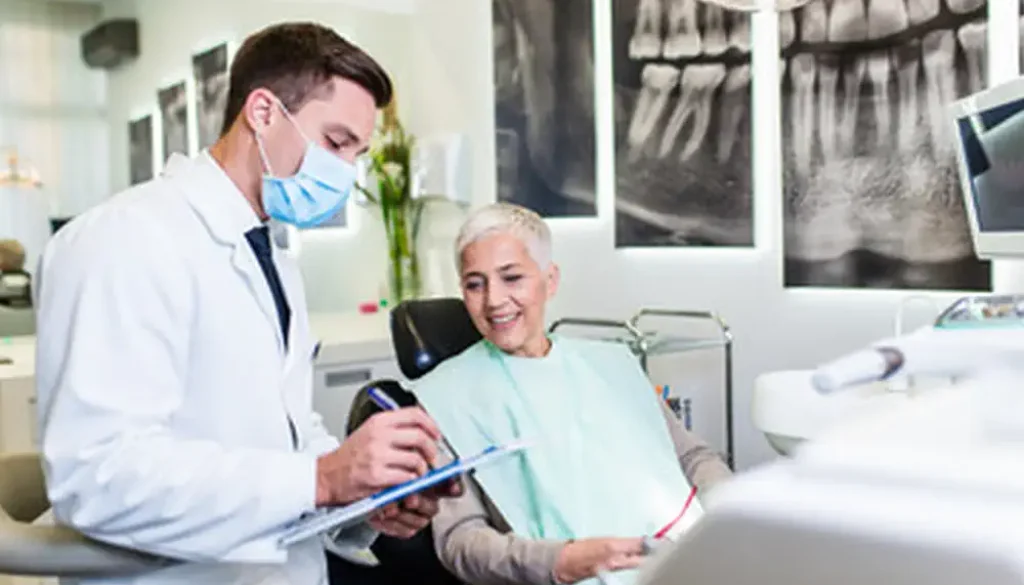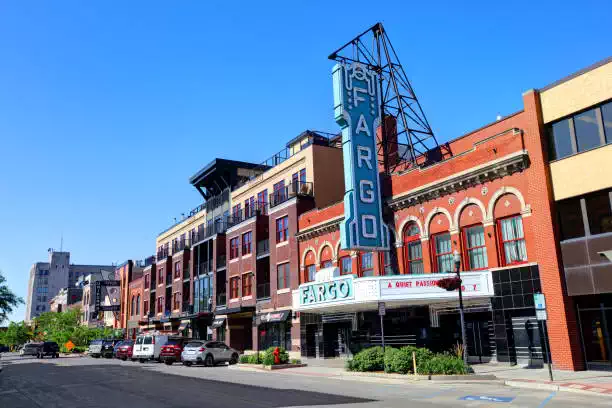Dental Grants in Pennsylvania
Last Updated on April 18, 2024 by Rachel
Ranked the eighth state with the highest median age (40.9), four out of ten Pennsylvanians are above 50. Maybe the State of Independence’s rich culture and history attract tourists and the elderly. The state has friendly taxes, and housing is affordable. The healthcare options and medical services are top-notch, a plus for seniors prone to health issues.
Pennsylvania’s beautiful landscape and low cost of living are not the only attractions for seniors. The state, local and federal government, other personal companies, and non-profit organizations have worked together and put up resources to enable senior Pennsylvanians to thrive. Being above 65 has more benefits here because they are prioritized more than seniors aged 50-64.
Are there Grants for Dental in Pennsylvania?
The population of seniors above 60 is 2.2 million, 17.8% of the state’s total population. Oral health is one of the major concerns of the elderly, and because of this population’s growth rate, it has become the state’s concern. The average number of dental care providers post-corona period was 60.9 in 2021 and 58.8 in 2022 for the 100,00 population. This is slightly below the national average. From 2015 to 2021, the state lost more than 200 rural dentists, which led to the loss of $73 million in labor income and $6.3 million in taxes. The loss is attributed to the lack of enough knowledge among dental providers and poor pay for the providers.
The number one barrier to accessing dental care is cost. In 2021, 2.7% of seniors above 65 avoided care due to cost. The percentage of uninsured seniors aged 55-64 was 5% in the same year. From 2019 to 2020, there was a 13.5% decrease in the number of dentists that accepted Medicaid patients, yet a 6.6% increase was observed in the number of Pennsylvanians that enrolled for Medicaid.
Seniors are more likely to be affected by dental conditions than other populations. The frequency of dental visits depended on an individual’s level of education and household income. More educated seniors and members from high-income households sought dental care more often than their counterparts. All these numbers proved the need for interventions to better the oral health situation in Pennsylvania. Dental grants were established to fund programs dealing with the root causes of the inaccessibility of dental care services among underprivileged populations.
How to Get a Dental Grant in Pennsylvania
The Pennsylvania Department of Health came up with the Pennsylvania 2020-2030 Oral Health Plan to provide a roadmap on ways to tackle the shortcoming of the dental care system and strategies to sustain the outcomes of the intervention in place to promote oral health. The Pennsylvania Oral Health Foundation, American Dental Association, Dental Lifeline Network, and other not-for-profit groups are working hand in hand with government agencies to ensure the goals of the Oral Health Plan are achieved.
Dental grants are awarded to individuals that can’t afford preventive and restorative treatments. The Donated Dental Services Program accepts individuals above 65, those who require medically necessary dental care, and individuals with permanent disabilities.
Dental Grants: Dental grants are offered to help ignored areas access dental care services they can’t afford. You can do your research online to find dental grants available in the state or visit your local dental clinic and enroll in programs that help cover dental costs.
Cosmetic Dental Grants: Cosmetic dental grants only cover cosmetic dentistry. The grants have no eligibility criteria since the procedures are elective, anyone can apply for them.
Dental Implant Grants: These grants are not awarded to individuals but to programs that offer these treatments at a discounted price or for free to seniors whose budget is not enough to pay for the costly implants.
Free Dental Implant Clinical Trials: Dental implant clinical trials are organized to enable students to practice what they have learned on actual patients. They also allow continuous testing of new drugs, methods, and devices to endure safety and efficacy. Participation in the trial is voluntary. Dental implants are given for free or at discounted rates to those who need them the most.
Charities that Help with Dental Costs
American Association of Retired Persons: The organization helps seniors above 50 by offering assistance to pay medical bills and enrolling in public benefits to improve their quality of life.
Mission of Mercy: The Mission of Mercy, A Call to Care is a two-day event where local dentist volunteer to serve Pennsylvanians for free. Patients receive dental care services without meeting eligibility criteria. Services are provided on a first-come-first-served basis. The program is run with funds from donations to help people who cannot afford dental treatments.
Free or Low-Cost Dental Clinics Near Me in Pennsylvania?
Yes, Pennsylvania has affordable, zero-cost, and non-profitable dental clinics that provide dental care services to the less privileged in society.
- HealthLink Dental Clinic- Hatboro
- Indiana Dental Center- Indiana
- Community Health Clinic- New Kensington
- Dental Clinic at Leigh Valley Hospital- Bethlehem, Allentown
- Frankford Dental Care- Philadelphia
A simple help search like “Free or low-cost dental clinic near me” helps you find the most affordable dental clinic nearest to you that provides dental treatment at sliding-scale prices to low-income seniors.
Will Medicare Pay for Dental Implants?
Medicare does not cover dental cost, including dental implants. However, Medicare Advantage Plans come with additional hearing, vision and dental coverage, in addition to the Original Medicare plan benefits.
The MA plans (Part C) will cover the cost of dental implants but following a co-sharing approach. Some plans cover 50% while others more depending on how long you have had your premium. The remaining cost you will have to cover out of pocket.
Medicare does not cover the dental cost, including dental implants. However, Medicare Advantage Plans come with additional hearing, vision, and dental coverage, in addition to the Original Medicare plan benefits.
The MA plans (Part C) will cover the cost of dental implants but follow a co-sharing approach. Some plans cover 50%, while others more, depending on how long you have had your premium. The remaining cost you will have to cover out of pocket.
In addition, MA plans to limit the dental services they offer. They do not cover all dental treatments. Furthermore, Medicare Advantage Plans have a maximum dental benefit amount limit. You can consider getting Prescription Assistance (Part D) to help pay for prescribed medication after your tooth replacement surgery.
Programs Helping with Teeth Cleaning, Fillings, Decays and Root Canal Costs
Medicaid: This is a program run by the Department of Health and Human Services that provides the following dental services to seniors above 65 when medically necessary:
- Crowns
- Fillings
- Extractions
- Oral examinations and assessments
- X-rays
- Root canals
- Palliative treatment for pain
Program for All-Inclusive Care for the Elderly (PACE): PACE has a program in Pennsylvania, Prescription Assistance comprehensive prescription cover, that settles medications that require prescriptions. A confirmation from PACE Provider Services is needed to ascertain that the prescription was ordered by the mentioned dentist.
Financial Assistance
Temporary Assistance for Needy Families is cash support provided by the Department of Human Services to seniors facing financial challenges to promote self-sufficiency. You need to submit your income information, immigration status, social security numbers, and proof of citizenship when applying for this Cash Assistance program.
Pennsylvania Emergency Cash Assistance is a short-term cash assistance offered to seniors who are not in a position to work or do not have enough money to sustain themselves. Older adults in nursing homes and those eligible for Supplemental Security Income qualify for this help.
Pennsylvania General Assistance Program is provided by the Pennsylvania Department of Welfare, to seniors who do not qualify for federal cash assistance, those with temporary disabilities, and those in need of medical emergencies. The duration one receives this support depends on the severity of their case.
The team effort from state and local authorities, private dentists, not-for-profit organizations, individual companies, and the federal government will ensure that the 2020-2030 Pennsylvania Oral Health Plan is achieved. Thanks to Medicaid programs and other interventions, seniors can receive dental care to improve their oral health.
Pennsylvania offers valuable resources to support seniors in maintaining their oral health and overall well-being. Access to dental grants is a vital aspect of the assistance available to older adults in the state. Prioritizing your oral health can significantly enhance your quality of life as you age. For more information on grants, aside from dental grants, like healthcare assistance for seniors, see our comprehensive post on Grants for Seniors in Pennsylvania.







